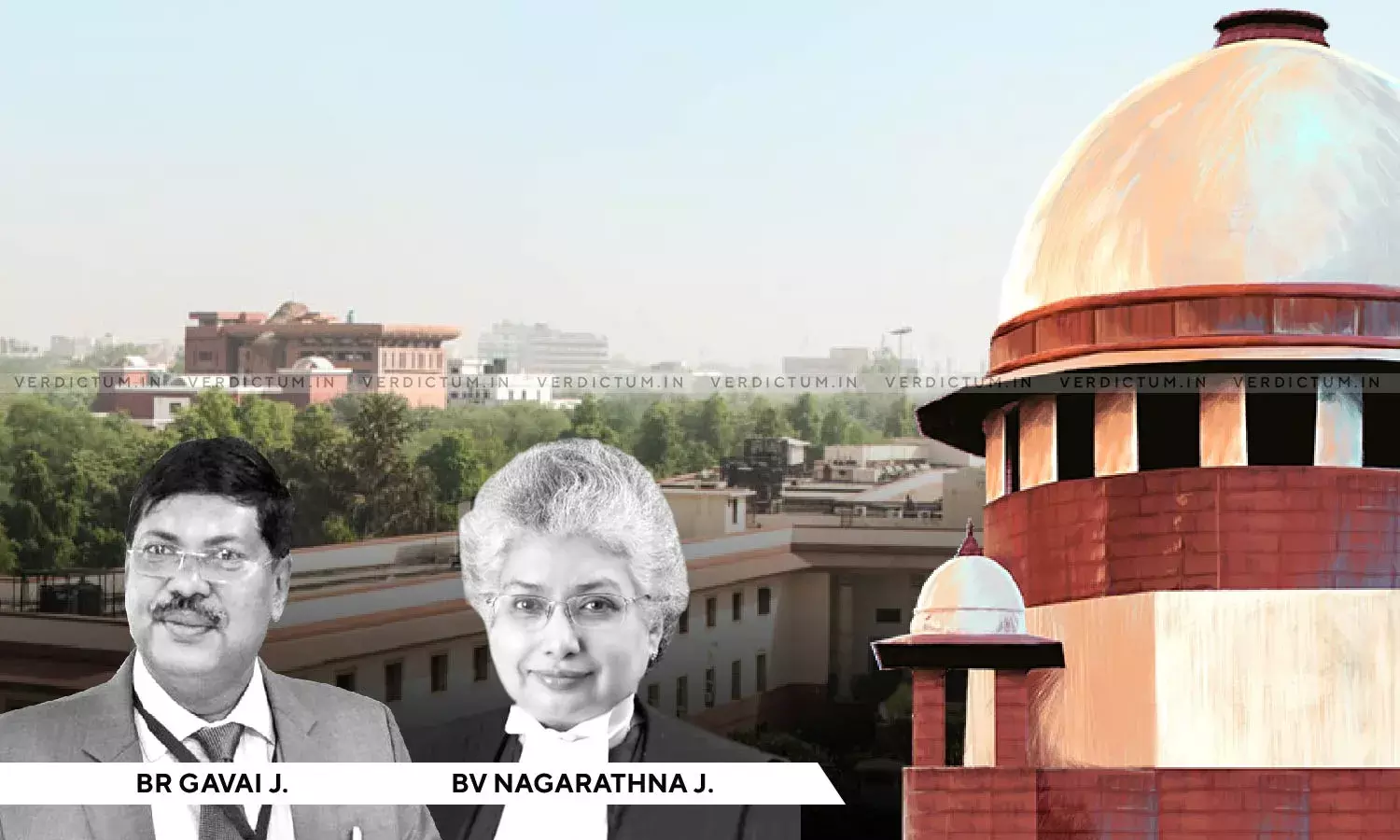SC Declares Assam's Rural Heath Care Law That Allowed Diploma Holders To Perform Procedures, Prescribe Drugs As Null & Void
A Supreme Court Bench of Justice BR Gavai and Justice BV Nagarathna has struck down the Assam Rural Health Regulatory Authority Act, 2004. By way of this Act, diploma holders in Medicine and Rural Health Care were permitted to treat certain common diseases, perform minor procedures, and prescribe certain drugs.
In that context, it was held that "the Assam Act, namely, the Assam Rural Health Regulatory Authority Act, 2004, is declared to be null and void, in view of the Assam Legislature not having the legislative competence to enact the said Law."
Senior Counsel Harin P. Raval and Senior Counsel Sanjay Hegde appeared for the Appellants. Senior Counsel Sri K.M. Natraj appeared for the Union of India. Counsel Ananga Bhattacharyya appeared for the State of Assam. Senior Advocate Vikas Singh, AoR Gaurav Sharma, and Advocate Dhawal Mohan appeared for the National Medical Commission.
In this case, the Apex Court has upheld a decision passed by the Gauhati High Court holding the Act to be null and void.
In that context, the Court has held that while the State has every right to devise policies for public health and medical education, with due regard to peculiar social and financial considerations, these policies ought not to cause unfair disadvantage to any class of citizens. In similar context, it was observed that "The citizens residing in rural areas have an equal right to access healthcare services by duly qualified staff. Policies for enhancing access to rural healthcare must not shortchange the citizens residing in rural areas or subject them to direct or indirect forms of unfair discrimination on the basis of their place of birth or residence".
It was held that "no State Legislature has the legislative competence to pass any law which would be contradictory to or would be in direct conflict with the IMC Act, 1956 and the Rules and Regulations made there under". Subsequently, the Bench observed that "The State Legislature has no legislative competence to enact a law which is in conflict with the law setting the standards of medical education in the context of modern medicine or allopathic medicine, which has been determined by Parliamentary Legislation as well as the Rules".
Pertinently, the Apex Court disagreed with the reasoning of the High Court where the High Court had held that the State did not have the legislative competence to enact the Assam Act in view of Article 254 of the Constitution on the premise that the IMC Act and the rules and regulations made thereunder were holding the field. In that context, it was observed that "In view of the aforesaid conclusion, we are of the view that the said reasoning is incorrect. It is reiterated that the IMC Act and the Rules and Regulations made thereunder, which are all Central legislations, have been enacted having regard to Entry 66 of List I and would prevail over any State Law made by virtue of Entry 25 of List III of the Constitution".
Accordingly, the appeals were dismissed.
Cause Title: Baharul Islam & Ors. v. The Indian Medical Association & Ors.












